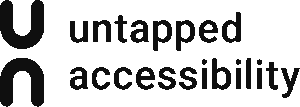*Note: This session has passed. Please view the recording and resources below.
Session Description
This brief session will offer practical strategies for creating learning environments that support students with ADHD (Attention Deficit Hyperactivity Disorder). You’ll learn how to reduce cognitive load to support executive functioning, explore multi-modal teaching methods, and discuss ways to build flexibility without sacrificing accountability. Whether you’re designing a course or working one-on-one with students, you’ll leave with tools to better meet their needs and help them thrive.
Learning Outcomes
- Identify key challenges faced by post-secondary students with ADHD
- Select multi-modal strategies to support diverse attention and learning needs
- Examine course elements that balance flexibility and accountability to promote student success
Schedule
- Introductions and access information – 5 minutes
- Key definitions – 5 minutes
- Overview of multi-modal learning and cognitive load – 10 minutes
- Building in both flexibility and accountability – 5 minutes
- Wrap-up and ongoing learning: access statements – 5 minutes
Recording and Resources
- Transcript – Accessibility Bites: Supporting Post-Secondary Students with ADHD (PDF)
- Transcript – Accessibility Bites: Supporting Post-Secondary Students with ADHD (Word)
- Slides – Accessibility Bites: Supporting Post-Secondary Students with ADHD (PDF)
- View recording on media.bccampus.ca
About the Facilitator
Meg Ingram (they/them) is a multiply-disabled accessibility advocate with a passion for project management, planning coordination, and equitable education. Drawing from their background working in both higher education and social services, they have a deep passion for carving out accessible processes and building meaningful relationships within and across sectors. Meg holds an MA in Sociology, with a focus in disability studies, from Queen’s University, and a BA in Sociology from the University of Victoria.

This session is supported by Untapped Accessibility. Untapped Accessibility launched in October 2022 to support B.C. organizations comply with the Accessible British Columbia Act. A certified social enterprise, they have helped over 180 organizations reach beyond compliance and create more accessible organizations with comprehensive and innovative approaches to disability inclusion. They generate revenue for Open Door Social Services Society, supporting the non-profit’s mission to open doors to lifelong learning and career success for more people with disabilities.
2025-26 Accessibility Bites Series
- Accessibility Bites: Introduction to Web Accessibility, August 28, 2025
- Accessibility Bites: Supporting Post-Secondary Students with ADHD, September 25, 2025
- Accessibility Bites: Let’s Talk about Learning Disabilities, October 30, 2025
- Accessibility Bites: The Gift of Dyslexia, November 27, 2025
- Accessibility Bites: Access Friction, December 11, 2025
- Accessibility Bites: UDL 3.0 in Practice, January 29, 2026
- Accessibility Bites: An Indigenous Lens on Disability Rights, February 26, 2026
For recordings and resources from previous Accessibility Bites workshops, visit the Accessibility Bites Pressbook.
